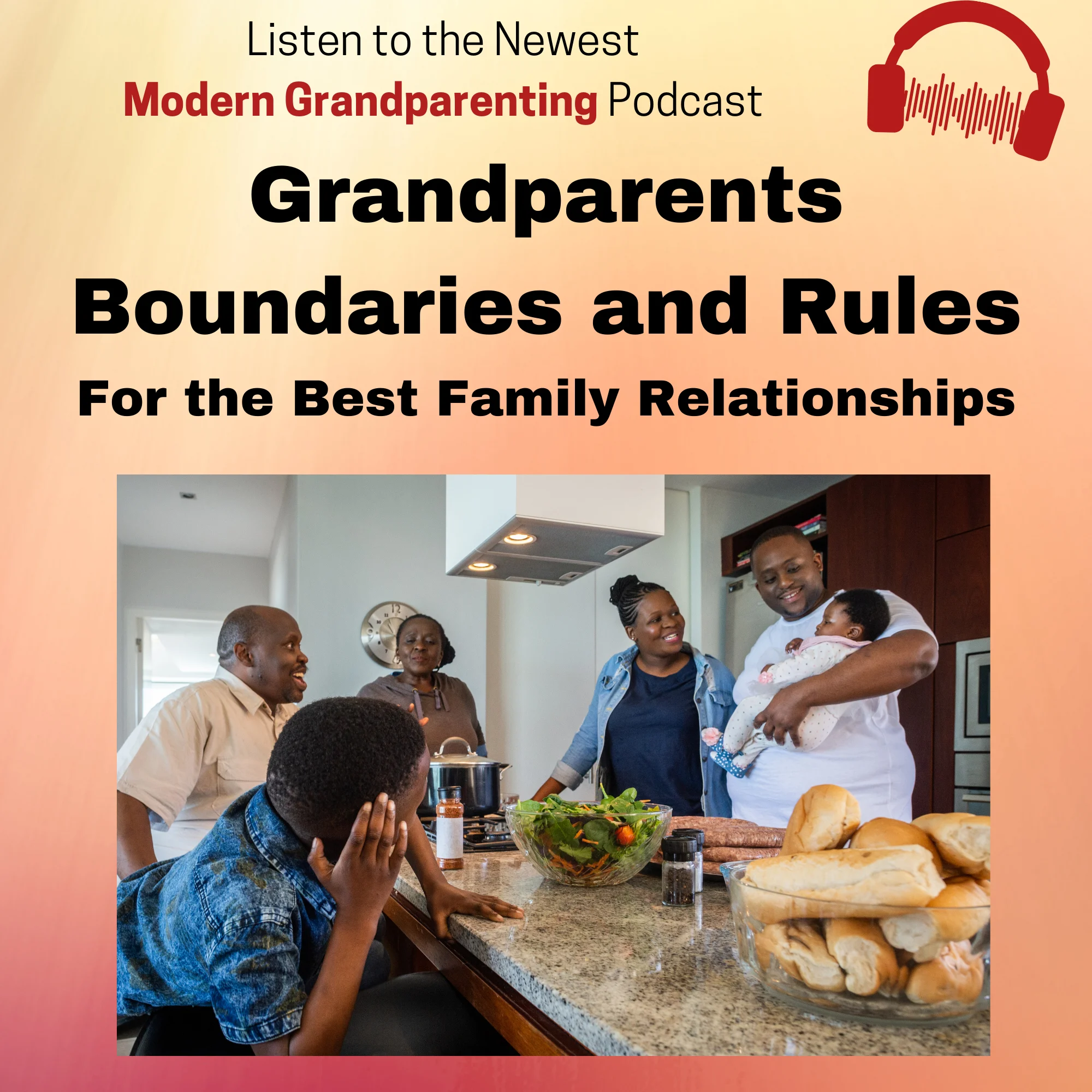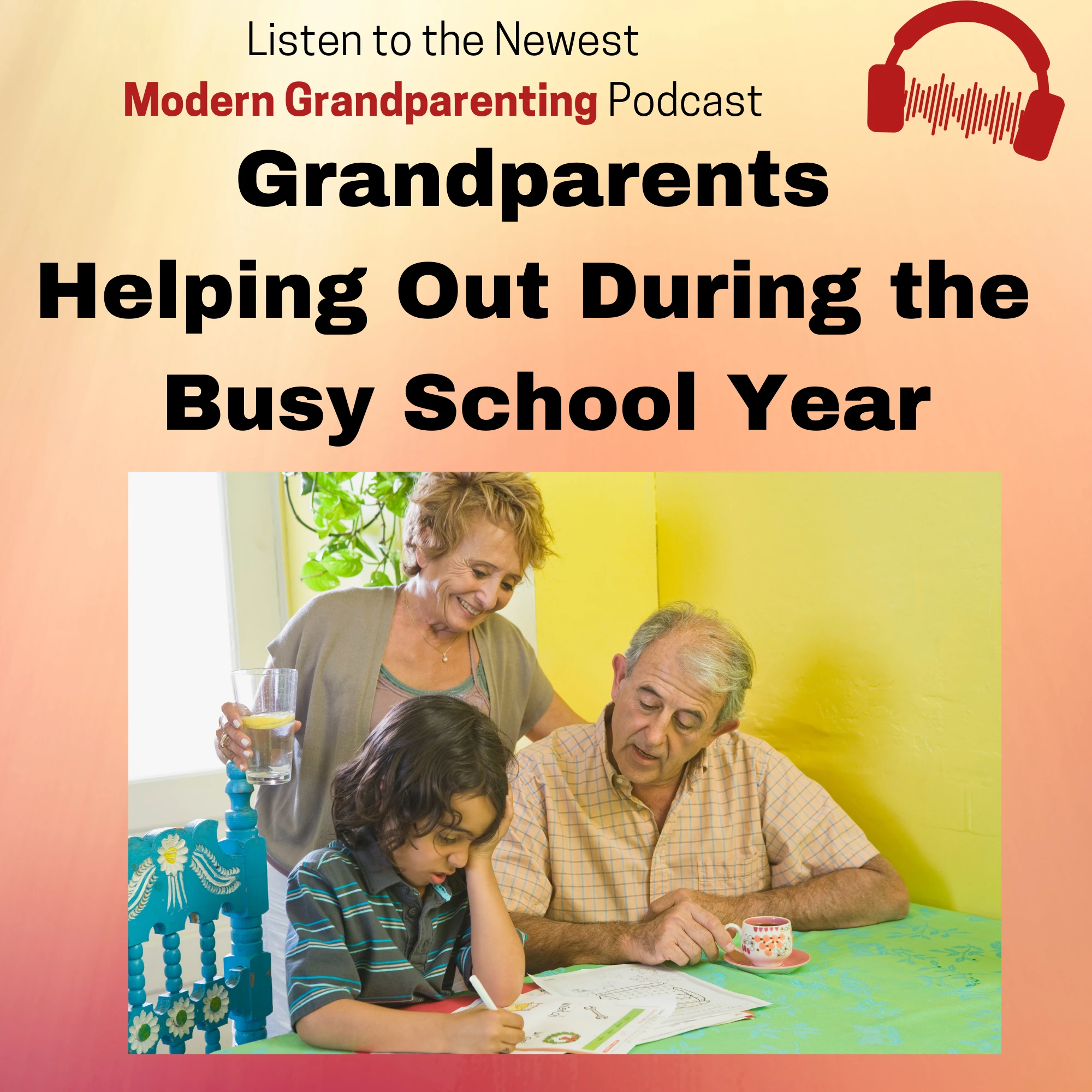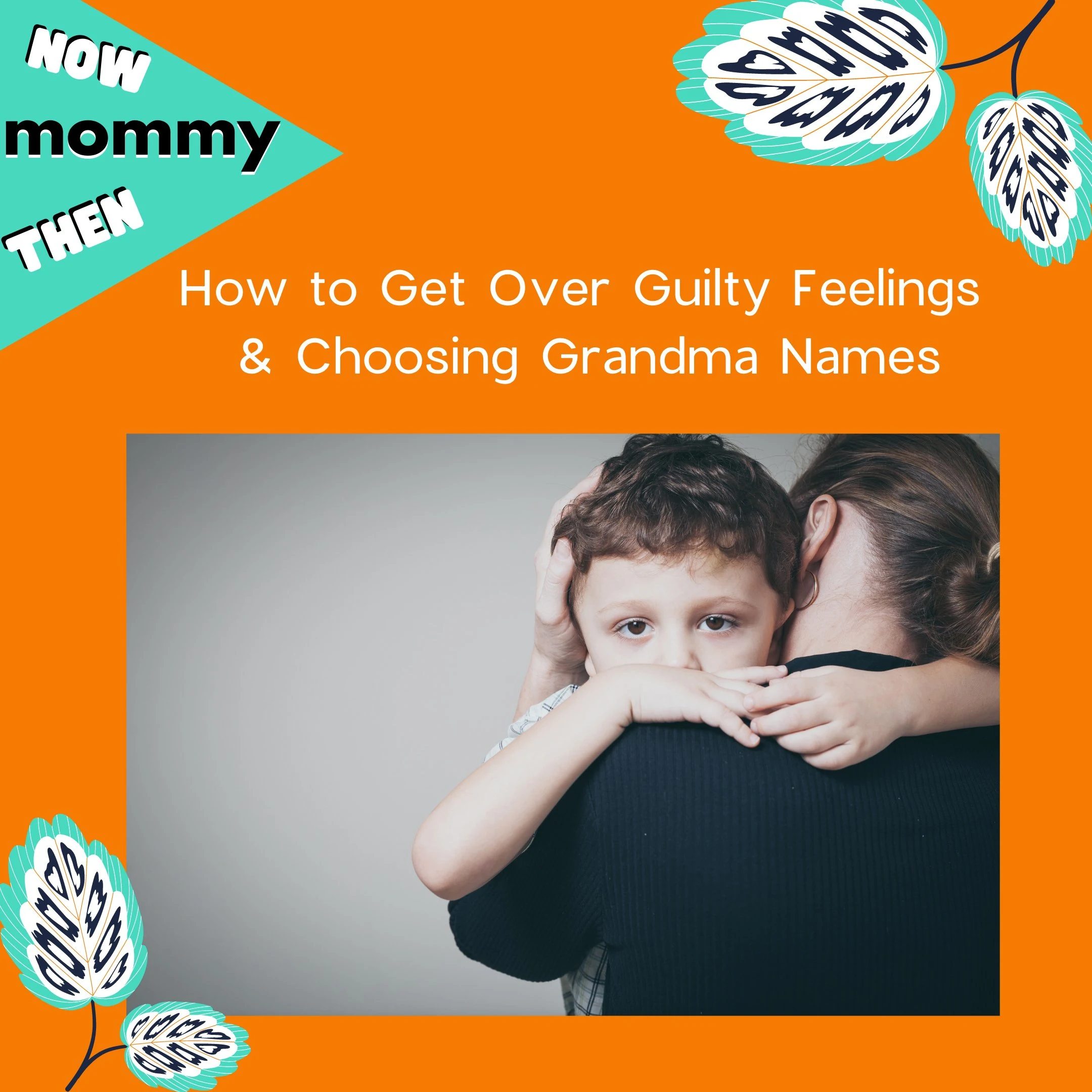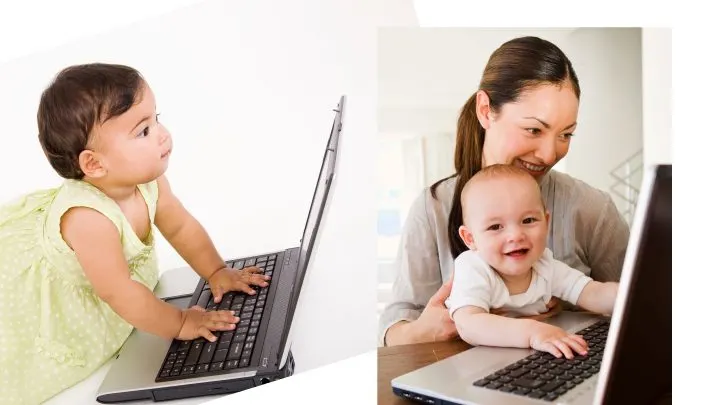In this episode of Modern Grandparenting, Jim and Corinne discuss the age old question of who do they love more? Their grandchildren or the children they raised? Do they treat their grandchildren differently? What do you think?
In this episode, the very first of our new podcast Modern Grandparenting, a Grandparent’s love is dissected. Jim and Corinne talk about the joy, the wonder of becoming a new grandparent and how that affects everyone. It is amazing how much love you feel for this new little person who has come into your life, but does that mean you love them more, or treat them differently than you did with your own children?
Episode 1 – Show Notes
0:33 – A little history
2:01 – Being away and how it was received
4:47 – Processing child’s actions
5:38 – Do we treat AJ differently than we did our kids when they were growing up?
8:03 – Patience and Age correlation
11:04 – Different worries and stresses
16:44 – Mindful Grandparenting
Community
We’d love for you to join our private Facebook group. That way you can comment and ask questions about your thoughts, interests, and problems of being a modern grandparent.

If you enjoyed grandparents love...
Full Transcript of Podcast
Jim 0:05
Welcome to our weekly podcast, modern grandparenting, where we discuss issues that grandparents have to deal with in this changing world, for maintaining the best relationships with both our children and grandchildren, to giving you all kinds of ideas of what to do all year long, and hopefully making some fun memories that will last a lifetime. In this episode, we talk about what a grandparents love looks like. And we discussed the question of whether or not you love your grandchildren, more than drouin children.
Corinne 0:33
What do you think? How strong is the grandparents love anyway? For me, I see my grandson a lot. You and I are the caregivers. And we see him almost every day during the school year. But we also miss him terribly when he’s not with us. When we were when the kids were growing up when our girls were growing up, we hardly ever left them because we lived overseas and we didn’t have someone to watch them for watch them for us. So they were always with us. It wasn’t even wasn’t even a thought really. They were just always with us.
Jim 1:04
Well, unless we were working in their in, in daycare, or whatever. That’s true. For most of the time that they were growing up. I was a shift worker. And if you were working you were working the day shift almost always. So between the both of us. Someone was almost always there during their waking minutes.
Corinne 1:24
Yeah, we have, we had a lot of time with them. And we never really did leave them that much. Although we did have a friend who would watch them on an occasional weekend here or there. And things like that. But we we certainly didn’t leave them for like a month like we just did with AJ
Jim 1:41
right on that on our trailer trip on a trailer tour around the West in the Midwest for about a month, month and a half. And well, we were able to FaceTime every day and we talked to him and he got to see us every day. It’s It was kind of strange, because at the beginning,
Corinne 2:01
he did get Saturday and Saturday though. Do you remember the day? We were talking to him on the phone on FaceTime, and he could see us? Can you just have the status look on his face? He just had this little frown. And then I was like, Oh, you poor sad little boy, he missed us. You could tell he was missing us. So I started singing abc songs to him and things like that. And he just sort of clumped over to his his, what he call it toy chest, toy chest. And he got grabbed his ukulele. And he brought that over to the phone. And he started playing while I was singing. And I thought that was the cutest thing. Oh, that was so cute. They did. No, you’re right. That’s right.
Jim 2:40
Yeah. But we can kind of see the transition over time. Even though we were talking to him pretty much every day. At the beginning, he was there he was looking at the phone or the computer screen happy is happy. And he’s spending most of the time there with us. But near the end, he would come over every time when we called. And he didn’t see us and he’d smile and maybe give a kiss to the phone. But then he’s like, but you’re not really here. So I’m going to go off and play. Yeah, off he would go to play.
Corinne 3:09
Yeah, that’s true. It did get less and less over the course of the month. And then when we got home.
Jim 3:13
Oh, now you’re talking about melting your heart. Oh, my. This was the first time for us at least. And I think for him where someone significant in his life had just kind of disappeared for a long period of time, more than more than a weekend or a week even,
Corinne 3:32
you know, because you can’t explain to a one year old that grandma and grandpa are going away on a trip and you’re gonna get to talk to him every day. And they’ll be kind of wild, but they’ll be coming back. They didn’t leave you forever. He doesn’t have that concept. He doesn’t have that background knowledge.
Jim 3:47
Right. So when we got back. We walked in and he saw us and he wasn’t sure what to think. So and you can see that in his face like they’re here. I’m happy to hear but
Corinne 4:04
but they left me and I’m mad at them. Yeah.
Jim 4:06
So he went through this whole range of emotions on it. And did you could see spelled out clearly on his face. Until finally he was like, Yeah, but
Corinne 4:14
but they’re here. They’re here. And so then he wouldn’t be with solidity clammed up in between us and sat between us and didn’t leave us the rest of the day. But oh, boy, that range of emotions that made us all want to start crying. Even now.
Jim 4:27
Yeah, he’s just watching that is so incredible. And that’s one of the good things about being a grandparent is just seeing that development happen in front of your eyes and the things that you maybe have read about or heard about. But now you’re experiencing them for yourself. It’s very cool.
Corinne 4:47
And you can breathe and take it in, you can take it in and really processes a little bit more than maybe during the busy life when you were younger. So really what we learned from that was that Yeah, we can go on a trip. But his tolerance for length of time, although I’m sure it’ll change as he gets older, right now is maybe two weeks. Yeah, like, we can probably go for two weeks, and he won’t get too upset with us. Because maybe now that this happened, he’ll understand that we’ll come back no matter what. But it was a little scary for us. And I think we’re gonna sort of tone it down a little bit not go on as long trips? Well, he has,
Jim 5:24
he’s learning to so like you said, he has to understand and process the fact that just because someone is gone for some time, doesn’t mean they’re gone forever. But that’s what he was grappling with, you can see that
Corinne 5:38
Yeah, so. So moving on a little bit, after we’ve learned that, we, it’s hard to for us to be away from our grandchild. Um, another thing I’ve heard people say over and over again, is that you treat your grandchildren so much differently than you teach them. You treated your own children as they were growing up. And I think there’s some truth in that. But I think there’s lots of reasons why too. Well,
Jim 6:03
I think, I think you’re right. And we kind of hit on some of it earlier, a lot of it stems with just the amount of time that you’re there with it with your grandchild or with your child.
Corinne 6:15
Well, I think that when at least, okay, so I can only speak really, from my experience, when we were raising our two children, both of us worked, I didn’t work necessarily all the time they were in before they started school, but I worked a lot of it. And I was also going to school. So we were very, very busy. Our lives were
Jim 6:36
things you have to do, whether your child is with you or not. So you don’t really have as much, I guess, play time. Well, as you do, as a grandparent, we
Corinne 6:46
played with them pretty well. But I also think that it’s it’s just different. It’s like, you don’t we don’t have our grandson, Aj 24. Seven, we see him a lot. We care for him during the day. But he goes home at night. And during that night, what do we do we clean the house. So we don’t have to do chores when he’s not here. That’s right, we he doesn’t have to, we don’t have to split the time. And there’s
Jim 7:11
chores that we do while he’s here. But he helps with them. He loves to get in the dishwasher and pull the clean dishes out and hand them to me, or vacuum the floor. That’s probably his favorite thing. And yeah, as a parent with your own child, you may have done some of that as well. That’s really important. But at the same time when you’re rushed, and you’ve got to get to work and you’ve got a million things to do. I think the tendency is to not do that as often. Whereas with AJ, when he’s here during the day with us, that’s our time with him and we want to get the most out of it. Yeah, we don’t have anywhere else we need to rush off to or something else that needs to be done without him. So he’s always part of it.
Corinne 8:03
And the few times that we have we worked around him, because we think that that’s very important. And so at the same token, I think that we have a lot more patience for everything that he’s doing. I don’t know, I mean, he does kind of seem to have a lot of patience. I mean, in this. In this particular case, I don’t think it’s that much of an issue. There were a lot older, having a child and we were we had our children, they were in their early 30s. And we were in their early 20s. That’s 10 years is a huge difference. So they have a lot of patience. And maybe that just comes with age in general. But I know that well, we were raising the kids, I think I mean, I don’t think we scarred them for life or anything. But we definitely had stresses that involved with the way that you know, things would happen. Right? So whether that’s good, bad or indifferent. I mean, just remains to be seen, I guess.
Jim 8:56
Yeah. Well, I think that we’re, we’re both pretty patient with them as children. But like you said, when you’ve got somewhere you’ve got to be and you’ve got a 30 minute commute or whatever, then your patients can definitely run thin.
Corinne 9:13
And that’s when you have to do something which you and I don’t have to do as grandparents. The other thing too is our memories fade. I mean, I don’t remember when I was too little I don’t remember my first memories are probably when I was around Well, maybe three for few glimpses. But but really about before that for sure. And he hasn’t got anywhere near three yet. So he’s not gonna remember this time, no matter how patient or impatient anybody is with him. But what it does is start to build his his persona, and his character and everything. But, um, but you know, as they become teenagers, they do remember that and also, that’s when they become a little feistier. So, wireless patient All right, it is different. Well, and that whole
Jim 10:04
idea of, you know, fading memories kind of goes along with how you remember your own children. And the time that you spent with them, you remember those key moments? But you may not remember the times that you did lose your patients and snap at them. And does that make sense?
Corinne 10:24
Yeah, well, your memories don’t hold everything. So it’s, it’s whatever your brain thinks you think is important, I guess? I don’t know. For me, that’s a whole different study, isn’t it? And then the other thing is money. Right? You know, typically, grandparents have a little bit more money than when you’re raising kids to begin with just because you’ve already, you know, you’ve already established yourself in your career, or you retired and you set aside it, or lots of different reasons, you don’t have to worry about sending the kids to college, you’ve already done that. You don’t have to worry about, you know, necessarily buying a house or whatever stage of life you’re in is probably more advanced. settled.
Jim 11:04
Yeah. So you don’t have those worries. And if you want to spend a little bit of money while you’re traveling for a gift or two, it’s not a big deal. You just do it, and your budget absorbs that. Yeah. Whereas as a parent, with a small child, you kind of like you said, you’re in a different place of your life. the expense of raising a child is the burden of the parent, not the grandparent, that’s right. We’re not buying, you know, diapers nonstop, and food and everything else. We just take care of him when he’s here. In fact, they buy him for us, and they buys the diapers, which is nice. Yeah, yeah. So that’s definitely an issue on how you’re treating them.
Corinne 11:46
But Jim, and I have very specific ideas, and many in grandparenting, which will probably be a whole podcast in and of itself. So stay tuned for that. Because that, you know, money is, money is definitely something people always need to a worry about and be have strong, strong opinions about, don’t
Jim 12:05
you think? Sure, and maybe not worry about it, but they still I mean, a healthy worry about money, I think is important. It should be part of your planning and everyday. Life not tray. Unless you have so much that it’s not an issue. Because are different worries too, I think, yeah, I don’t know.
Corinne 12:25
Yeah. We’re not Sunday, at any weight for us in the stage of life that we are, and hopefully many of you are, this is the stage where you can relax and you can enjoy your grandkids. And you can whether you take care of them during the day, or whether you only see them on weekends, or even on just a virtual call once a week, catching up with them. It’s a time to really, really enjoy them. And hopefully, you maintain that relationship and they want to maintain that relationship with you. And that’s really the reason for this podcast. That’s, that’s why we’re here because we do believe that that having that healthy relationship with your grandchildren is not only healthy for them, but it’s also healthy for you.
Jim 13:16
Okay, so let’s move on. Well does being a good grandparent means spending lots of money on your grandkids or giving them special treats all the time. You certainly didn’t do this with your own kids.
Corinne 13:29
Well, I remember when I was, when I was a child, I didn’t live anywhere near my grandmother. In fact, we lived overseas quite a bit, same as when you and I were working. And so I only got to see my grandmother maybe once every three years or something. And she treated me very special when I was there. She did not she was not an overly giving person. And that’s okay with me. But she did do though, if she would make sure that I got to go with her shopping to the to the grocery store at least once or twice or three times. Whatever, while we were there visiting. And while we were there, she would always say you can pick out one thing, which Okay, so she wasn’t being too like, Oh, yeah. have anything you want. Yes, you can have that. Yes. Again. Of course I didn’t ask either was a different time and, and I was not great. I wasn’t raised to keep asking for things because he was gonna be no so. And then I also knew that my grandmother lived alone and grandpa had died years and years before and that she was on a limited income. So I didn’t want to spend all our money. So I would get like a pop pop tote or something while I was at the store. And I remember that very vividly and how important that was to me. But I also remember that I didn’t take advantage of her. And she didn’t buy me like I can’t tell you one gift she gave me other than that. Not even mine. It wasn’t important to me the pop tart was for some reason. Yeah.
Jim 14:56
And for me, my grandparents We’re both gone. Before I could remember. So I have some very vague memories of my grandmother, but not really my grandfather he had he passed away much earlier. And so maybe, yeah, I think, like butterscotch candies, I do have memories of having those candies from her, which I thought was cool, which I thought was cool, but at the same time, and we have some treats that we give at AJ every now and then. But we try not to make sure that we’re sugaring them up and sending them home.
Corinne 15:39
Well, we hardly ever give them shatter.
Jim 15:41
Exactly. It’s just not good for them. But I mean, that’s a common, I guess, myth about grandparents, right?
Corinne 15:47
Well, I didn’t send him home I hear is still to this day. Lots of people say, you know, Mom said that she he can’t have any sugar, or she can’t have any sugar before dinner, but I’m taking them out for ice cream, I only get to see him once a week. Well, if that’s okay with mom, and dad, then that’s okay. But I wouldn’t make that routine, if that goes against their wishes, because that’s just going to dredge up a lot of other problems. And maybe little Graham child is going to be silent about it for a while. But at some point, it’ll come out
Jim 16:22
well, and it’s, he’s he or she is learning all the time. So that’s something that the child is learning is that I’m gonna go to grandma’s or grandpa’s, and she’ll break the rules. She’ll break the rules. So okay, breaking the rules is okay. Now. Yeah, especially when it comes to my parents, we, that’s something you really want to avoid.
Corinne 16:44
We really want to be mindful when we’re with our grandchildren. That we’re being role models and being what we want them to do when they grow up.
Jim 16:53
Yeah, no matter how much time you have with your grandchild, you’re part of their development process. So everything that you do you need to put into that context, that sort of mindset. Yeah, that context
Corinne 17:04
in mindset is exactly at having a very purposeful, cognitive,
Jim 17:09
I mean, you have to be aware of what effect you’re having on a child. We just had some time, I guess that comes from education.
Corinne 17:17
Yeah, it really does come right education background. As teachers, we’re very, very aware of how anybody’s actions can can make a huge impression on a child, and how that plays into the larger world and into their psyche into developmental and developmentally what they become. And it’s unfortunate, because it’s hard to change you as a teacher, you certainly don’t have really much you can do about it, except perhaps make the parents aware, if possible. But as grandparents, you’re in a different role there. And perhaps you can make a difference, depending on how much time or even as little time as you have with your grandson or granddaughter. Being mindful and understanding what kind of person you’d like them to be in the long run, certainly can lead your behavior. So what do you think?
Jim 18:15
Any final thoughts? Do
Corinne 18:16
you love your grandson more than you love your daughters? Well, I
Jim 18:19
think that, that your love is probably as strong for both. It’s just they’re they’re different. Your relationships are in different places with both.
Corinne 18:30
Well, they’re different Anyway, you love me differently than you love your daughter. You love your daughter differently than you love her grandson. It’s a different laugh. Is it a stronger love?
Jim 18:39
It’s hard. I mean, I doubt it. It’s hard to quantify.
Corinne 18:42
I don’t think it’s possible to Love A Child anymore. Then we love our children and our grandchildren. As every child grows, the relationship evolves,
Jim 18:54
right? And you can’t, as a parent, when you have to discipline your child. That’s not saying you don’t love them.
Corinne 19:01
That’s right. In fact, it’s a real thing. You
Jim 19:04
really love them, and you care about their development, and you care about how they’re going to grow up as human beings. So as a grandparent, maybe you’re not displaying as often, although I would argue that you’re still part of the process. You shouldn’t be doing it in place of anybody else. But that’s again, another whole nother podcast.
Corinne 19:23
We’ve got lots of topics for future podcasts here, don’t we?
Jim 19:25
So your, your relationship is evolving. In both cases, your love is changing in both cases, but it’s, I think, just as strong for both.
Corinne 19:37
Yeah, I agree. 100%. Okay,
Jim 19:40
what she said.
Corinne 19:42
Thanks for joining us this week. I’m out of grandparenting. We will have a podcast every week for you to listen to. So please subscribe, and don’t miss one because we think this is important and we hope you do too. For more on all things grandparents. Go to our website at Grammar School. Digital. By signing up for our newsletter you’ll never miss out. Also, please hit subscribe. Thanks and happy writing
Transcribed by https://otter.ai





